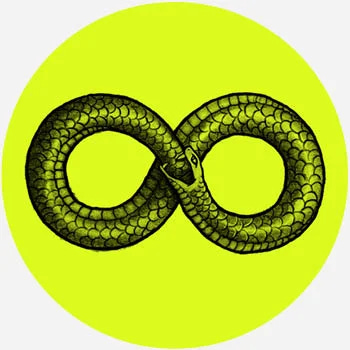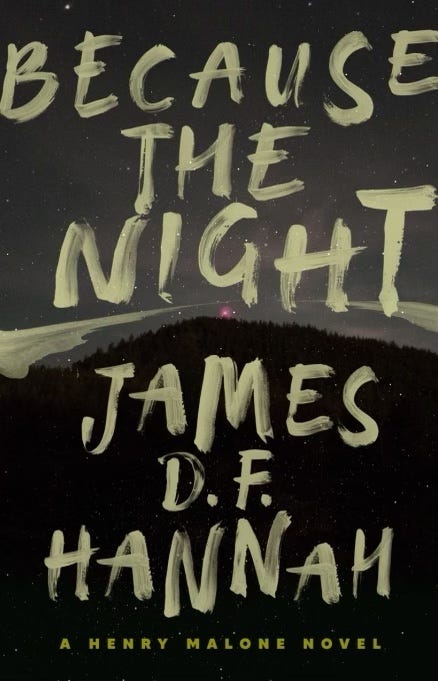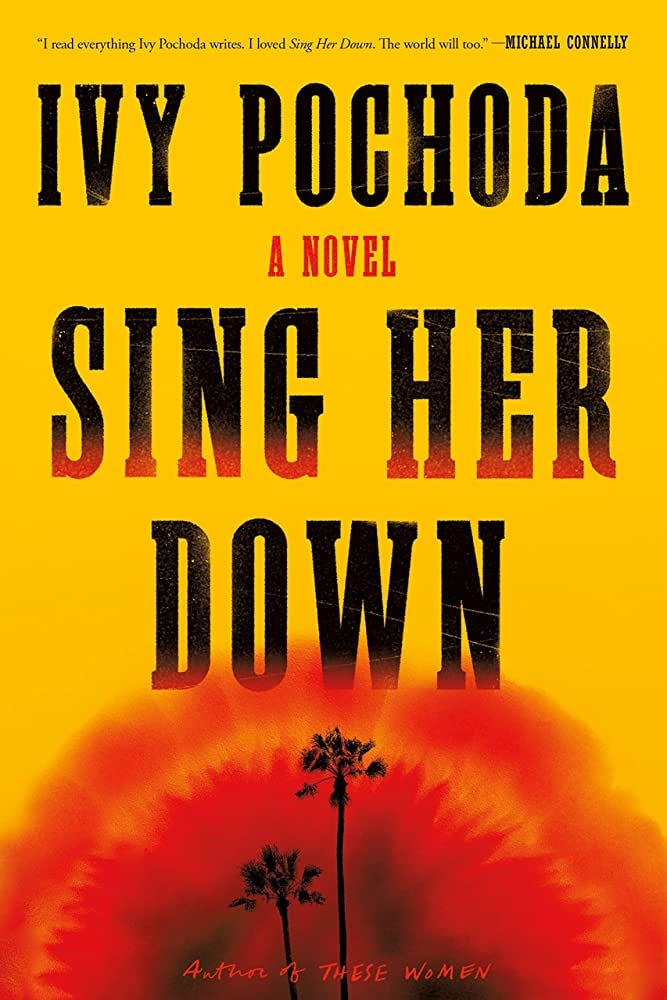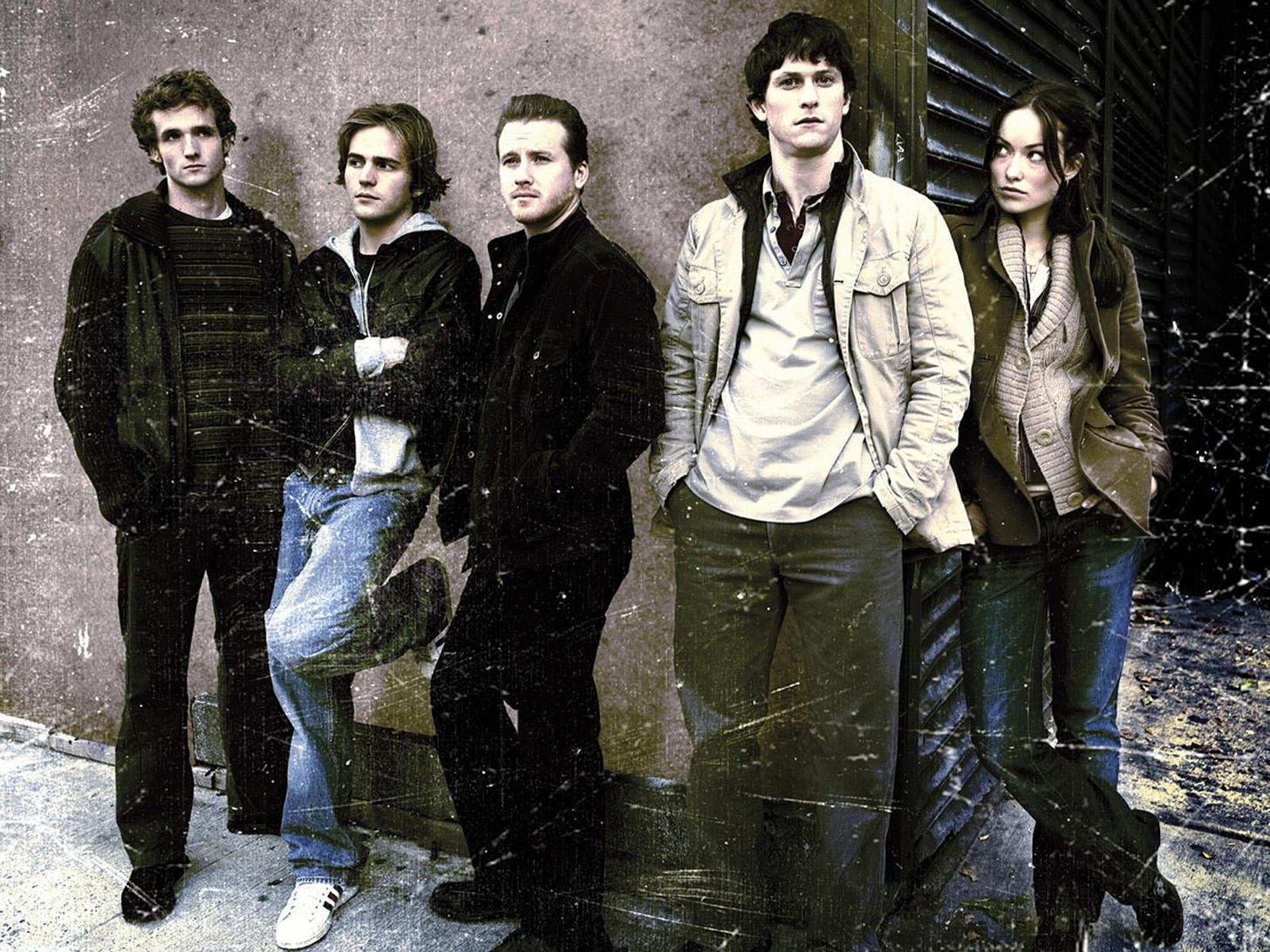#6: The ouroboros of it all
Do we write because we have control issues, or do we have control issues because we write
The subject on control came up in my writing group recently. The conversation started around the ability to relinquish control in situations. This opened the door to discussing our own various levels of control issues, and it got me wondering if we have control issues because we are writers, or do we write because we have control issues. Is it a chicken, an egg, or just a snake eating its own tail?
After all, with notable exceptions, writing is a solitary process. It’s you and the page, and ultimately, it can only be you and the page. As writers and creators, we are the architects of everything that happens; then the question becomes. where’s that bleed out into other aspects of our lives?
So I asked a few writers the same question: “Do we write because we have control issues, or do we have control issues because we write?”
From Tara Laskowski, author of the wonderful THE MOTHER NEXT DOOR and the upcoming THE WEEKEND RETREAT:
I'm not a regimented schedule person, and I'm not a good plotter of my books (I'm not a good pantser, either; basically my process for writing novels is an utter trash fire.) But I definitely have control issues in other ways. I'm a perfectionist, and I don't like letting other people down, so I'm very aware of and stress about things like deadlines. I also obsess about things that are not within my control and go worst-case-scenario on everything. And I over-prep for things like presentations or events. I prefer panel moderators who send questions ahead of time--not so I can memorize my answers, but just so I know what to expect and can think about it ahead of time. I'm not a fan of surprise questions, I guess.
From Curtis Ippolito, author of BURYING THE NEWSPAPER MAN—a great piece of southern California noir—and the Anthony-nominated “The Estate Sale”:
I have to believe most writers have issues with control on some level. We make up characters, plunk them into worlds we create, and make them face obstacles and conflict, and as a byproduct share our voice and outlook on greater themes and issues. That’s certainly the case personally. It makes me think a lack of control in my childhood could have been a contributing factor as to why I write. On the page, I am in control. I do and say what I want. I think another area I see this issue of control come into play is with my actual writing routine. If I’m writing daily and in a good groove, and my writing time is interrupted for any reason, I get thrown off and can spiral easily. This is true of my day-to-day routine as well…which means I probably do have control issues. So thanks for that.
From Tracy Clark, who’s deservedly been nominated or won every award imaginable and whose latest, HIDE, kicks off what I’m hope is a long-running series:
Not sure I'd call it control, but I think most writers write because they want to understand things that often seem unfathomable. Cruelty. Inhumanity. Hate. Fear. And we can delve into the human condition through stories and characters. There on the page we control the narrative. We ask the questions. We guide the action. Through all that we gain the perspective we didn't have before. And there's no right or wrong way to do it. We control the pace , the timbre, the worldview. And that's how I like it. Because I'm a control freak. 🤣
And from Rob Smith, probably the hardest-working writer I know, and who always seems to have a new story coming out somewhere:
I worry if I don’t control situations or events that they will get away from me and descend into ruin. That they will be unsettling interactions and detract from everyone’s “good time” and by everyone, I mean mine. Or worse yet, reflect poorly on me. I over-plan every night out, every road trip, and every other event of my life, minor or major. I’ve got contingencies upon contingencies and escape routes for everything. I don’t know what I think is going to happen. Perhaps writing allows me to go all worst-case scenario and explore each one to its final unrealistic conclusion. The characters that inhabit these stories are my test pilots and astronauts on far-flung missions designed to put them through the wringer. I’m what might be considered a passive-aggressive control freak.
My stories never have happy endings. How could they? It’s my shortcoming that I can never see a positive outcome for the harried pilgrims of my unknown psyche. They don’t deserve my machinations. None of us do.
A SUBTLE REMINDER:
BECAUSE THE NIGHT—#6 in the Henry Malone series, and the follow-up to the Shamus-winning BEHIND THE WALL OF SLEEP, is out next week! When I started writing what became the first Malone novel—MIDNIGHT LULLABY—sometime in 2014, I never imagined a world where there’d be six books about the grumpy, nine-fingered asshole. I’m incredibly excited for folks to read this one, which wraps up some story threads started in the previous book and opens up doors for Henry’s future.
WHAT I’M READING:
In a time where there seems to be no end of great crime fiction, here's a contender as one of the best books of the year. SING HER DOWN cements Ivy Pochoda as one of the great noir chroniclers of L.A.
The story is simple: During the opening days of the COVID pandemic, two women are given compassionate early parole from prison. Florence "Florida" Baum wants nothing more than to keep on running from her past, even denying it to others and herself. Her ex-cellmate, Diosmary Sandoval, knows the truth about Florida, however, and she believes she is key to Florida seeing the truth about herself. From sun-bleached Arizona to the undomiciled camps of L.A., Florida and Dios circle and pursue each other, with a determined female police detective harboring her own secrets close behind.
Pochoda writes in razor-sharp prose that harkens to Cormac McCarthy, James Ellroy, and Jordan Harper but feels distinct to her voice as it cuts into the hearts and minds of the female characters. Pochoda explores the female capacity for violence while also detailing the horrors of the pandemic. It's often a nightmare on the page, and the pages will keep turning once started.
Her previous book, the extraordinary THESE WOMEN, put Pochoda in my must-read list. SING HER DOWN makes her a must-buy.
A NOT-SO-SUBTLE REMINDER:
“Somewhere Outside Salvation,” the latest in the A GRIFTER’S SONG series, is out. Equal parts southern gothic and carnival noir, chock full of fast action and smart-assed dialogue, but with the heart of a love story. Come for that glorious cover, but stay for the heroin-addicted magician and the one-legged Ukranian knife-thrower.
Read it already? Feel free to drop a review on Amazon or Goodreads, and please know I appreciate your support.
WHAT I’M WATCHING:
THE BLACK DONNELLYS: You might not remember THE BLACK DONNELLYS; the actors who were on it probably don’t remember it. A 2007 NBC crime series, it’s maybe most notable for having been co-created by post-CRASH Paul Haggis, and for featuring Olivia Wilde in an early role. Even with an Oscar-winning writer/director behind it, THE BLACK DONNELLYS only made it for six episodes, though 13 were produced (the back seven were streamed on NBC.com, at a time where streaming was the place you sent things to die).
But I’m a sucker for short-lived series where you can buy the full run for a few bucks on DVD, and I’m midway through watching the series. The show’s awkwardly positioned, post-SOPRANOS and THE SHIELD, one year before the debut of BREAKING BAD, and by having been on network TV. It aims for dark and gritty, occasionally hitting the mark, but often rather finding the most obvious route and bearing down on it (the show’s Italian mobster antagonists are about two steps away from being Fat Tony on THE SIMPSONS.)
In spite of this, and hindered by being on a network that didn’t seem to know how to program a show that wasn’t either reality or produced by Dick Wolf, THE BLACK DONNELLYS is an interesting time capsule of mid-aughts crime drama that had more potential than you’d expect. On another network, with a little more money and a little more vision by the producers, the show could have been something—or it may have not. As it stands, it’s 13 episodes of above-average crime drama that very much feels of its time. There’s worse ways to spend a few evenings.
That’s all we’ve got for now. Thanks for coming. See you next time, and hey, let’s be careful out there.









I'm not sure it's a control issue, but I'm definitely obsessive about the writing, and every little interruption is aggravating!